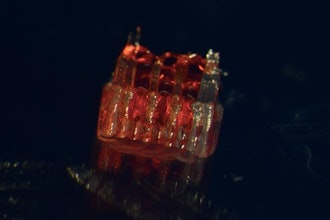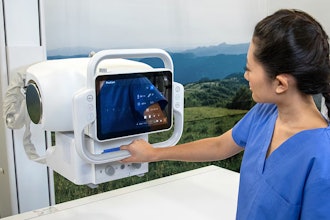Researchers at Rutgers University have created a device that uses artificial intelligence and biosensors to determine if chemotherapy is working in cancer patients.
In a new study in the journal Microsystems & Nanoengineering, the researchers say that the small device has been 95.9% accurate in counting live cancer cells.
Current devices use a cell staining method that takes time and limits the amount of further analysis. This portable device provides immediate results and doesn't ruin the sample.
The device takes a small sample of fluid from the patient. The fluid and tumor cells pass through gold electrodes in a tiny fluidic hole. The electrodes send a signal to a computer, which uses machine learning to predict the cell's viability. If it sees dead tumor cells, the therapy is working; if they are alive, the treatment is not working and at that point the doctors could build a new treatment plan.
According to the researchers, the device will not only enable more personalized medicine, but will improve disease management and detection. And the relatively low-cost design could help lower the financial strain of the terrifically expensive process.
Next, the team plans to test the devices using tumor samples from live patients.






















